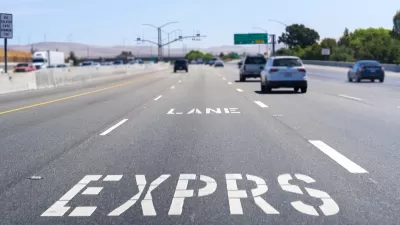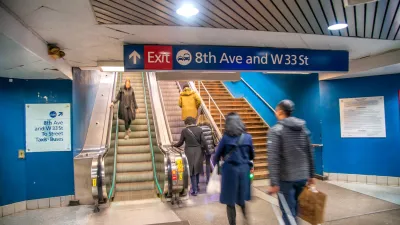A "Black Hat security researcher" claims he has discovered security flaws in the FasTrak toll transponder used by drivers in California and Colorado. However, the story is quickly dismantled as "baloney" by a toll road industry insider.
From the original article on the "Dark Reading" website:
"A Black Hat researcher recently reverse-engineered the popular RFID-based FasTrak toll tag that some drivers in the San Francisco Bay Area affix to their windshields for pre-paying highway tolls, and discovered some gaping security holes that leave these transponders vulnerable to sniffing, cloning, and surreptitious tracking of a driver's comings and goings. Nate Lawson, principal with Root Labs, will demonstrate at Black Hat USA next month in Las Vegas what he found inside those toll tags (hint: no encryption), and he will release an open-source tool for users to protect their toll tags from abuse."
From the evaluation by Toll Roads News, which concludes that the charge is dubious:
"Dark Reading reports: 'Lawson is also researching whether malware could be planted on a FasTrak transponder.' That sentence makes us think this guy Lawson is an amateur. The only "research" needed to establish whether anything could be planted on the FasTrak transponder is a visit to the website of the manufacturer...
If you cloned someone else's transponder account number you might put some tolls on someone else's account for a month or so, until the account holder saw the anomalous toll charges. Once notified, all the toll authority would have to do to catch you would be to program the violation cameras to retain pictures of the transactions on that account number, and they'd have you for fraud."
FULL STORY: FasTrak hacking claim - we suspect it's baloney

Planetizen Federal Action Tracker
A weekly monitor of how Trump’s orders and actions are impacting planners and planning in America.

Chicago’s Ghost Rails
Just beneath the surface of the modern city lie the remnants of its expansive early 20th-century streetcar system.

San Antonio and Austin are Fusing Into one Massive Megaregion
The region spanning the two central Texas cities is growing fast, posing challenges for local infrastructure and water supplies.

Since Zion's Shuttles Went Electric “The Smog is Gone”
Visitors to Zion National Park can enjoy the canyon via the nation’s first fully electric park shuttle system.

Trump Distributing DOT Safety Funds at 1/10 Rate of Biden
Funds for Safe Streets and other transportation safety and equity programs are being held up by administrative reviews and conflicts with the Trump administration’s priorities.

German Cities Subsidize Taxis for Women Amid Wave of Violence
Free or low-cost taxi rides can help women navigate cities more safely, but critics say the programs don't address the root causes of violence against women.
Urban Design for Planners 1: Software Tools
This six-course series explores essential urban design concepts using open source software and equips planners with the tools they need to participate fully in the urban design process.
Planning for Universal Design
Learn the tools for implementing Universal Design in planning regulations.
planning NEXT
Appalachian Highlands Housing Partners
Mpact (founded as Rail~Volution)
City of Camden Redevelopment Agency
City of Astoria
City of Portland
City of Laramie




























